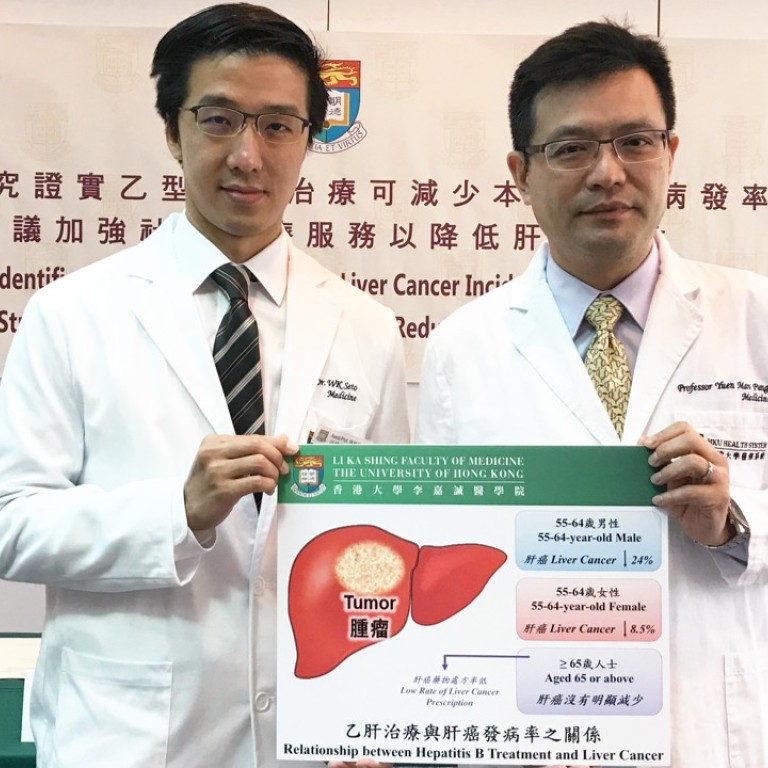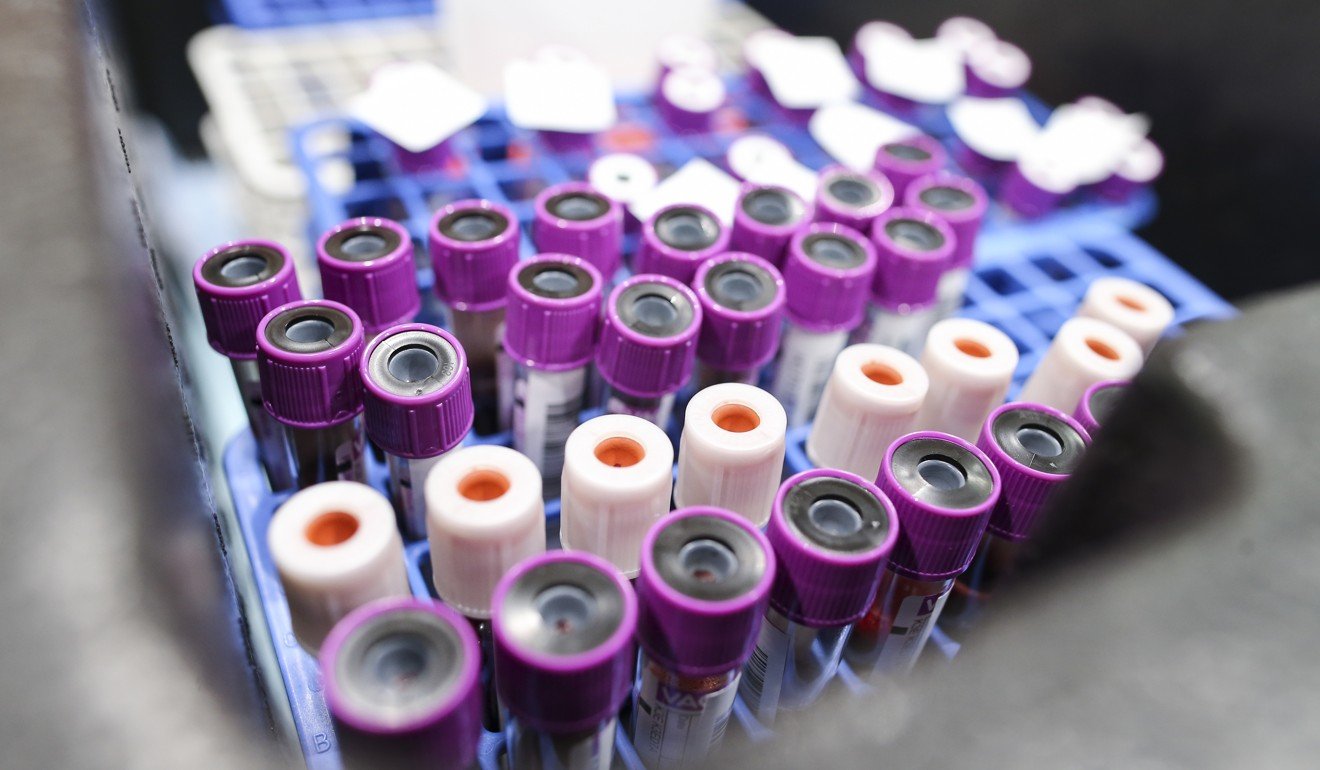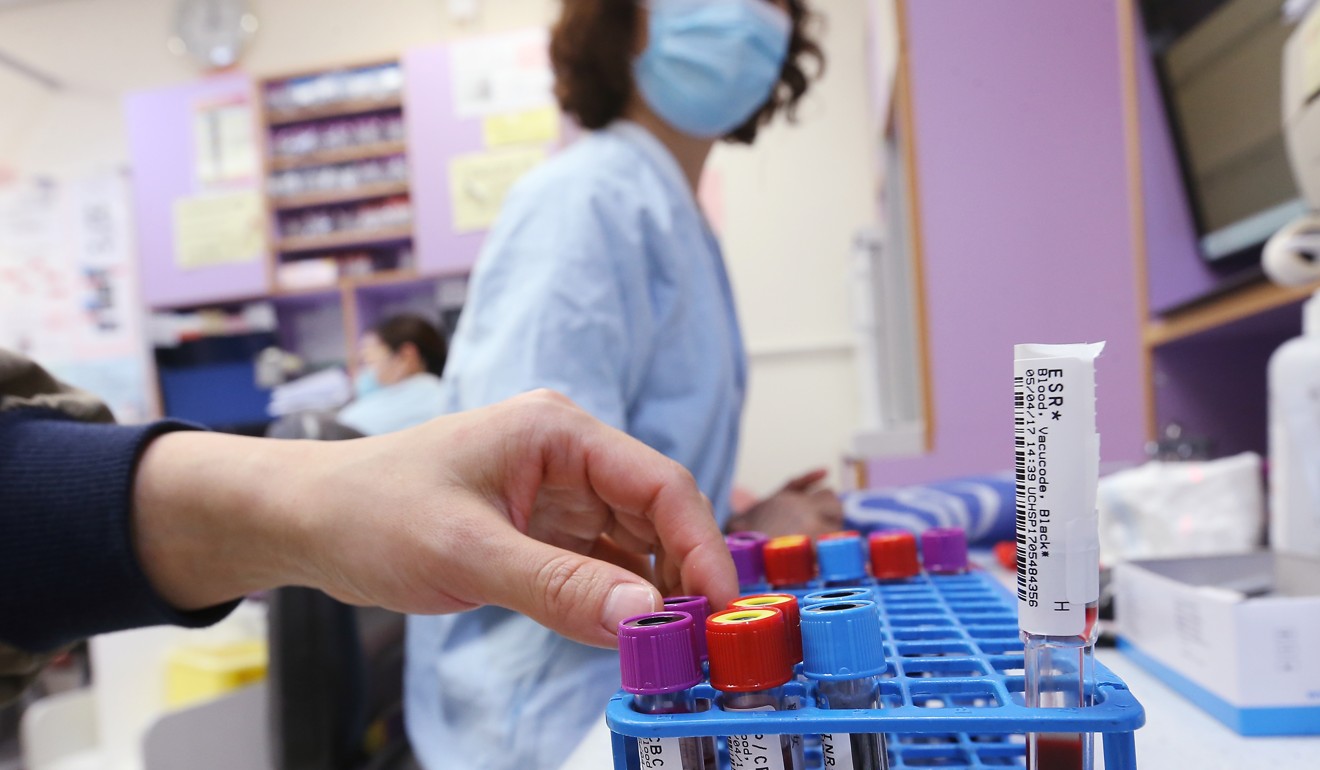
Treat hepatitis B and you cut the likelihood of developing liver cancer, HKU researchers find
Higher rates of clinic visits and drug prescriptions help
Timely treatment of hepatitis B can effectively reduce the likelihood of liver cancer, University of Hong Kong researchers have found.
Their citywide study reviewed drug prescriptions for over 26,000 hepatitis B patients at Hospital Authority specialist outpatient clinics from 1999 to 2012 as well as data for liver cancer incidence in Hong Kong from 1990 to 2012. It found that when hepatitis B was effectively treated, liver cancer incidence fell, with those aged between 55 and 64 benefiting most.

Liver cancer incidence among male hepatitis B carriers who received treatment for their viral condition plummeted by 24 per cent from 1999 to 2012, while for such female carriers, the rate declined by 8.5 per cent.
Hepatitis B now affects around 560,000 people in the city, and for one in four of them, the infection could progress into a more serious disease such as cirrhosis or liver cancer without regular check-ups and timely treatment. Around 80 per cent of liver patients are hepatitis B carriers.
Woman who needed two liver transplants after medical blunder dies in Hong Kong hospital
Higher rates of clinic visits and drug prescriptions were cited as contributing to a greater reduction in cancer cases among people aged 55 to 64.
But elderly patients in the city – those aged 65 or older – were less likely to see such benefits as they were less likely to seek medical treatment.

“People didn’t seek consultations as they did not feel any discomfort as a virus carrier,” said Professor Richard Yuen Man-fung, lead researcher and the university’s chair of gastroenterology and hepatology. “Also, many of them didn’t know they were carriers.”
Among hepatitis B patients seeking help from Queen Mary Hospital’s liver clinic last year, people aged 55 to 64 comprised the largest group of patients, at around 31 per cent. That compared with those aged 65 or older, who accounted for 15.9 per cent.
Hong Kong scientist helps find missing gene key to liver cancer
Yuen urged people who were not clear about their hepatitis B status to get a blood test and seek medical help if they were confirmed to be carriers.

